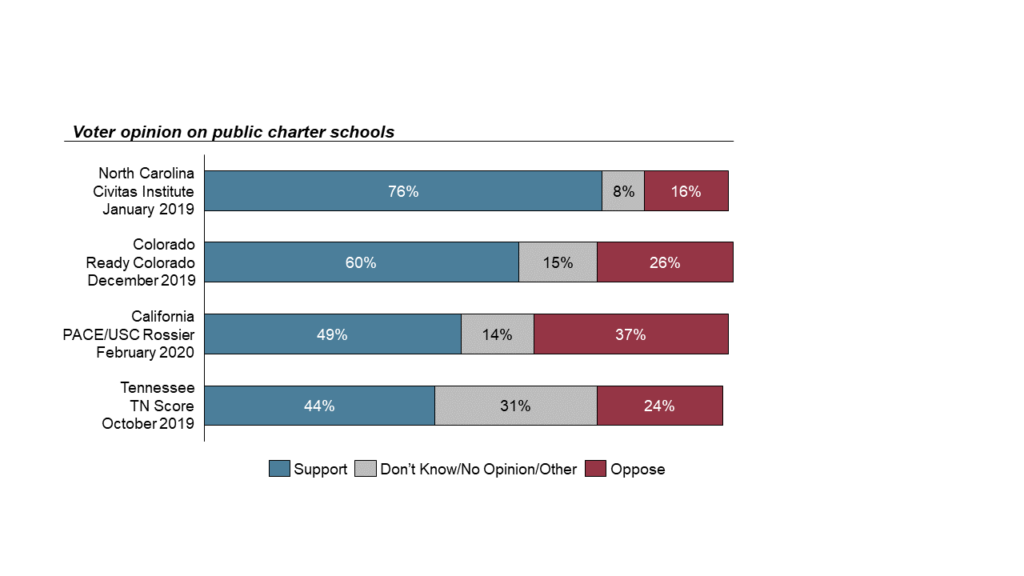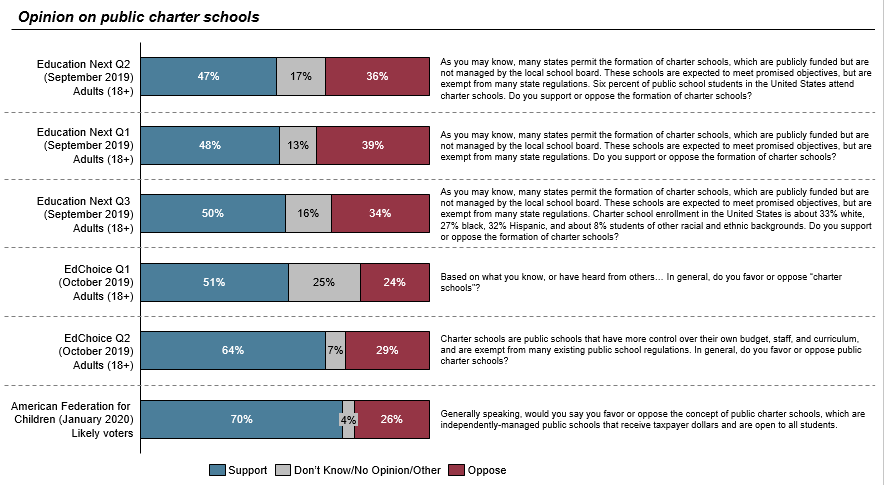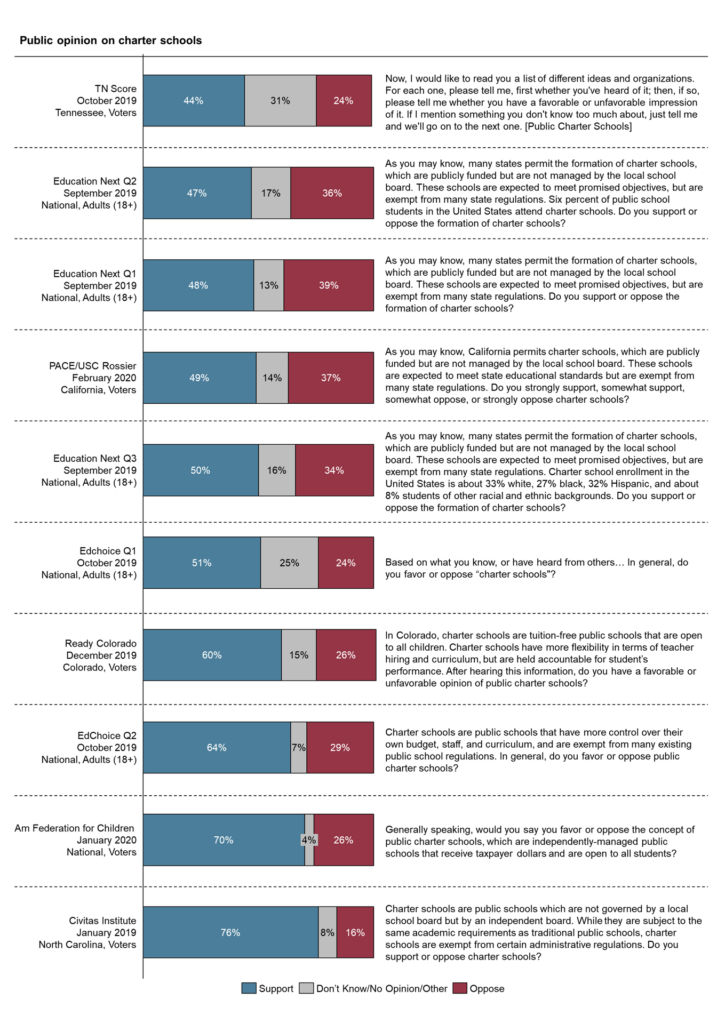When asked about charter schools at last week’s Democratic debate in South Carolina, former New York City Mayor Michael Bloomberg hedged, saying he was “not sure they’re appropriate every place.” Other primary candidates dodged the question altogether, pivoting quickly to talking points on teacher pay, school funding, and quality child care. Why are Democratic candidates so reticent to engage on the question of charter schooling? Charter schools are a contentious issue within the Democratic Party to be sure, but by avoiding the issue, candidates are missing an opportunity to demonstrate the kind of leadership the Democratic Party needs.
Looking at polling data, it’s clear that candidates who stake out positions flatly in favor of or against charter schools are bound to alienate a core Democratic constituency. Democratic candidates don’t want to upset teachers or their unions, which are powerful Democratic interest groups that often oppose charter schools. Polling among teachers supports candidates’ concerns: EdChoice’s 2019 Schooling in America Survey poll found that a majority (55%) of public school teachers support charter schools; however, their margin of support was lower than any other subgroup detailed in the poll results. The 2019 Education Next Poll found that 42% of teachers supported charter schools overall, but only 28% of union-member public school teachers, compared to 50% of non-union public school teachers. And in “Voices from the Classroom 2020,” Educators for Excellence found only 35% support for charter schools among public school teachers. In turn, multiple candidates have endorsed policies that would seriously restrict the growth of the charter sector, including eliminating the federal Charter School Program, banning for-profit charter schools, and supporting proposals to make school districts the only entities that can authorize charter schools.
No candidate has gone so far as to oppose charter schools altogether, however, likely because charter school support is particularly strong within African American and Hispanic/Latinx communities, which are disproportionately served by poorly performing schools, often in segregated neighborhoods, making school choice a powerful issue. Both the EdChoice and Education Next polls found majority support for charter schools among these groups. In fact, just days before the South Carolina primary, where black voters make up the majority of Democratic primary voters, both Senator Elizabeth Warren and former Vice President Joe Biden met with the Powerful Parent Network, a group that supports school choice and garnered attention last November for confronting Warren at a campaign event in Atlanta.
How Democrats navigate the issue also depends on constituencies in various states. Today, Super Tuesday, candidates must court votes from states where public opinion on charter schools varies widely. Across the thirteen states with primaries taking place tonight, we found relevant 2019-20 polling data on charter schools in four of them. Support ranges from just 44% in Tennessee to as high as 76% in North Carolina.

In addition to variations by state, an overlooked lesson from polling data is that support for charter schools also varies widely depending on how the poll questions describe these schools. For instance, EdChoice found that only a small majority (51%) of the general population favored “charter schools” when no description was offered. But support jumped to 64% when charter schools were described as “public schools that have more control over their own budget, staff, and curriculum, and are exempt from many existing public school regulations.” Similarly, a poll by the American Federation for Children found 70% support for charter schools when described as “independently-managed public schools that receive taxpayer dollars and are open to all students.” And a poll by Democrats for Education Reform found that 80% of voters would support a proposal to “expand access to public charter schools, but put tougher accountability rules in place to make sure charter schools are putting their students’ needs first.”
Any analysis of question wording is messy. Each question includes more than one piece of information about charter schools, and not all data point in the same direction. (Education Next asked about support for charter schools in three different ways, providing information on these schools’ operations, enrollment share, and student demographics; support varied little across these questions.) Broadly speaking, though, polling data suggest that people support charter schools more when they are described as public and accessible, with greater school-level decision-making power and accountability for their results.
As Democrats pursue a turnout-based election strategy, they need to ensure strong support across state lines and constituency groups, despite their varied interests. Rather than hemming and hawing on charter schools, they should instead focus on how to empower public schools to make decisions that best serve their communities, and in turn hold them to a high standard — perhaps the primary goal of the charter movement. Moreover, as we’ve discussed a number of times on this blog, autonomy and accountability aren’t just reserved for charter schools anymore: districts are learning from the charter sector and establishing their own autonomous schools.
Instead of simply dodging the issue so as not to offend, these candidates should cut through the noise and propose solutions that address charter schools not as a standalone policy to be “for” or “against,” but as one of many tools that can improve public education writ large. Opportunities to demonstrate this type of leadership are something candidates should consider seriously while asking voters to let them lead their party and country.
Note: The American Federation for Children, Education Next, Education Reform Now, Ready Colorado, and the State Collaborative on Reforming Education (SCORE) are former Bellwether clients. See the full list of our clients on our website here.

